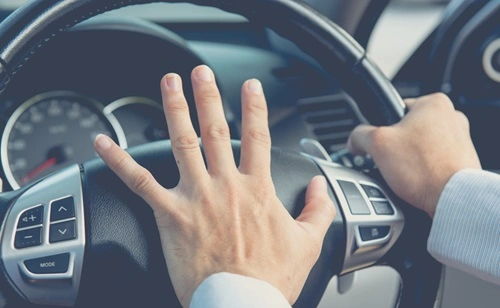Yes, it is illegal to honk your car horn for no reason in many states, as it is generally considered a form of noise pollution and a potential safety hazard. While car horns are designed to be a safety tool, most jurisdictions limit their use to situations that require alerting others of a potential danger or to avoid accidents.
The Legal Framework for Honking
1. State Traffic Laws
- Nearly every state has laws regulating horn use, typically found in traffic and vehicle codes.
- For example, California Vehicle Code §27001 mandates that horns be used only when reasonably necessary to ensure safe operation or to warn of a potential hazard. Unnecessary honking can result in fines.
2. Local Ordinances
- Cities and municipalities may impose stricter noise ordinances that specifically address horn usage. For instance, some urban areas prohibit honking except in emergencies to minimize noise pollution.
3. Public Disturbance and Disorderly Conduct
- Excessive or unnecessary honking can also lead to charges of public disturbance or disorderly conduct, especially if it occurs in residential areas or late at night.
Why Unnecessary Honking Is Prohibited
1. Safety Concerns
- Overuse of horns can confuse drivers and pedestrians, making it harder to identify genuine warnings.
- Excessive honking can startle or distract others, increasing the risk of accidents.
2. Noise Pollution: Honking contributes to noise pollution, particularly in densely populated areas, leading to disruptions and complaints from residents.
3. Preventing Road Rage: Unnecessary honking can escalate tensions on the road, potentially leading to road rage incidents.
Scenarios Where Honking Is Permissible
1. Alerting to Danger: Honking is legally allowed to warn other drivers, cyclists, or pedestrians of an immediate hazard, such as a vehicle veering into your lane or someone crossing the road unexpectedly.
2. Avoiding an Accident: If a driver is not paying attention or is about to collide with you, using your horn is justified and legally permissible.
3. Emergency Situations: Honking to alert others during an emergency, such as a mechanical failure or an impaired driver, is within legal bounds.
Consequences of Unnecessary Honking
1. Fines and Citations
- Penalties for unnecessary honking vary by state but generally include fines ranging from $25 to $350, depending on the jurisdiction and frequency of violations.
2. Points on Driving Record
- In some states, repeated offenses may add points to your driving record, potentially affecting your insurance rates.
3. Noise Violation Penalties
- Cities with strict noise ordinances may impose additional penalties for violating local noise pollution laws.
How to Use Your Horn Responsibly
1. Follow the Law
- Familiarize yourself with your state’s traffic laws regarding horn use and comply with local noise ordinances.
2. Use Judiciously
- Only honk when it is necessary to prevent an accident or ensure safety. Avoid using your horn as a means of expressing frustration or signaling to friends.
3. Be Mindful of Time and Place
- Refrain from honking in residential neighborhoods, near schools, or during nighttime hours unless absolutely necessary.
Related FAQs
Q1. Can I get a ticket for honking in frustration?
Ans: Yes, honking out of frustration or anger is considered unnecessary and can result in a citation for improper horn use in many states.
Q2. Is honking allowed during celebrations or protests?
Ans: Some jurisdictions allow honking during parades or protests, but prolonged or excessive honking may violate noise ordinances, depending on local laws.
Q3. Can I honk to get someone’s attention?
Ans: Honking to greet someone or get their attention is generally discouraged and may be illegal in certain areas.
Q4. What happens if I honk at night in a residential area?
Ans: Honking late at night in residential neighborhoods can result in fines for noise pollution or public disturbance.
Q5. Are there exceptions for honking in emergencies?
Ans: Yes, honking to warn of danger or alert others in emergencies is legally permitted and encouraged.
Conclusion
While honking your horn is not inherently illegal, its misuse can lead to fines and other legal consequences. Car horns are intended as safety tools, and unnecessary honking—especially in non-emergency situations—can create hazards, disturb others, and violate local laws. To avoid penalties, always use your horn responsibly and in accordance with traffic regulations.

